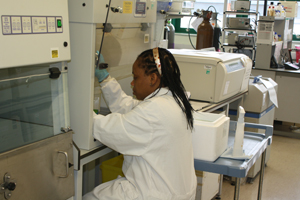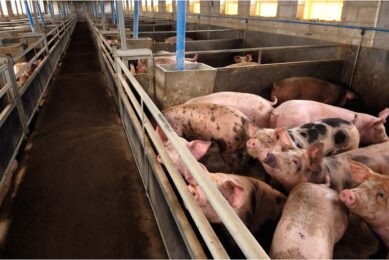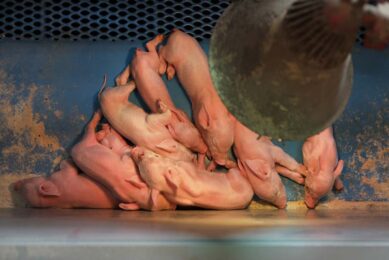Nottingham University opens Centre of Excellence

As of April this year, Nottingham University and Lallemand Animal Nutrition established the ‘Monogastric Centre of Excellence’. The Nottingham-based centre aims to intensify research to neonatal and weanling gut health.
Having a focus on research & development, yeast producer Lallemand Animal Nutritio recently faced a fundamental question. How to ensure and strengthen its future pig research projects now the company is growing in many directions? Building a new research lab requires enormous investments – and one could wonder if that would exactly meet the company’s expectations. After all, main driver of the company’s research is to increase the knowledge about what happens inside a piglet’s gut during and after weaning. This is an area where nutrition, physiology and animal health meet – so what is required is an open mind and cross-disciplinary input. Where better than at a university campus can all necessary skills be found, grouped together?
At a special event around the official opening, on April 9th, Dr Yannig Le Treut, general manager of Lallemand Animal Nutrition, explained why the yeast producer and Nottingham University was a good match: Nottingham University has a longstanding history and a worldwide reputation in animal nutrition research. In addition, the university has been working on various studies which involve yeast products over the last couple of years, making a more intensive cooperation a logical next step. Le Treut said, “We have achieved a lot of progress thanks to this cooperation over the last couple of years, particularly with the cooperation of Dr Ken Mellits.” Nottingham being in the United Kingdom also proved to be a bonus for the yeast producer, headquartered in Québec, Canada, and also strongly present in France. Le Treut said, “We have an ambition of growing all over the world. Therefore it would make sense to search for a research institute that is elsewhere again, preferably in an English speaking country.” Mellits, director of the new centre of excellence, said ‘delighted is an understatement’ to express his enthusiasm about the initiative. “It fits really nicely with the university’s aims to deliver contributions in terms of pig gut health as well as global food security. In addition, we are working on something sustainable – as yeast can be an alternative to antibiotics use. On top of that, this university has had a long history of livestock research, both in ruminants and non-ruminants. It will only be a matter of time before we will also move into poultry research.”
The total investment costs of the cooperation for Lallemand in this year alone is about €300,000. From this money, various trials and studies are being paid, in addition, it offers two researchers and a PhD student to be working on-site, being on the Lallemand payroll. Mellits emphasizes that the cooperation should be seen as a company supporting science, with academic integrity being guaranteed. “For Lallemand, this is a way of positioning themselves as a knowledge partner.” The new centre of excellence kicked off on April 9 with a inauguration conference, called ‘Gut microbiota function and health: The role of probiotics’. Two studies were highlighted at the event – and may serve as an example as to what to come. They can be found at the pages opposite.
Source: Pig Progress magazine Volume 29.4 (2013)
Join 18,000+ subscribers
Subscribe to our newsletter to stay updated about all the need-to-know content in the pigsector, three times a week. Beheer
Beheer










 WP Admin
WP Admin  Bewerk bericht
Bewerk bericht